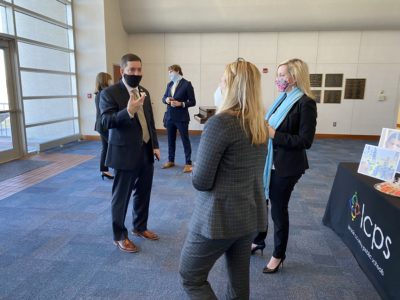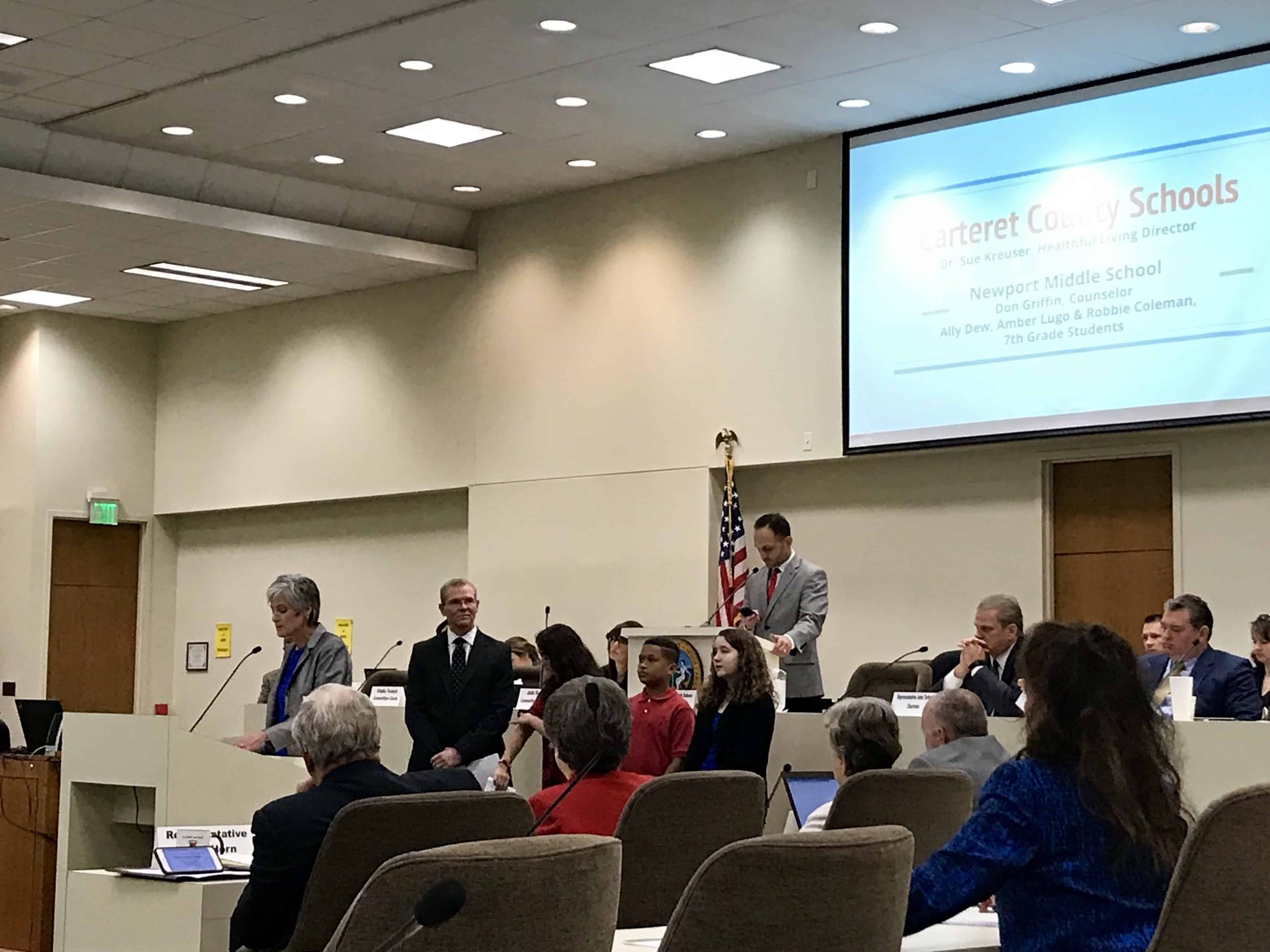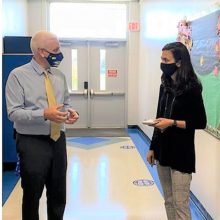After hearing from various subject matter experts on student health personnel and services, the subcommittee on student health of the House Select Committee on School Safety made six findings and six recommendations during its second meeting on Monday.
Subcommittee recommendations
These recommendations will be brought to the full Committee for consideration during its meeting on May 10.
1. North Carolina should accept the nationally certified school psychologist credential as complete fulfillment of the requirements for licensure as a school psychologist.
This school psychologist reciprocity legislation aims to increase the number of school psychologists in North Carolina, as there are 74.9 school psychologist vacancies across the state. The proposed legislation for this recommendation can be found here.
2. North Carolina should continue to work towards a goal of meeting national recommendations for staffing of student support positions to ensure and improve care and intervention for the social and emotional needs of students.
This recommendation comes from the finding that the student-to-personnel ratios in North Carolina for school counselors, school nurses, school psychologists, and school social workers are all well above the recommended national ratio. According to the subcommittee’s findings, these personnel are crucial in ensuring students have access to a continuum of support to meet their social, emotional, and mental health needs.
3. North Carolina should require threat assessment teams in all public schools to better assess and intervene in potential threats within the school setting.
This recommendation stems from a presentation given by Kym Martin, executive director at the N.C. Center for Safer Schools, during the subcommittee’s first meeting. Martin asked the subcommittee to consider requiring schools to put a threat assessment process in place due to the increase in threats of violence against schools since the school shooting in Parkland, Fla.
While some schools have threat assessments informally, this recommendation would mandate such processes. One benefit of threat assessments is that they allow school personnel to better identify real threats versus hoax threats from students who may end up in juvenile detention for what they thought was a practical joke.
4. North Carolina should require peer to peer counseling programs in middle and high schools to identify and assist students with social, emotional, and behavioral needs.
During the first subcommittee meeting, Rep. John Torbett, (R-Gaston), asked Martin to work in the development of legislation for peer-to-peer programs, as these programs engage fellow students in the early identification and assistance with mental health and behavioral needs.
This recommendation also comes with proposed grants for the establishment of such counseling programs. The proposed legislation for recommendations three and four can be found here.
5. Further study is necessary to develop a plan to efficiently coordinate care among mental health support professionals and to train these professionals to identify potentially dangerous mental and behavioral health issues.
Throughout the presentations at both of the subcommittee’s meetings, one theme came up time and time again: coordination of care between the entire school health support team — including counselors, social workers, psychologists, and nurses — is crucial to ensuring students don’t “slip through the cracks” of the mental health service continuum.
This recommendation encourages the General Assembly to enact legislation for the continued study and development of a a plan for coordinating services among these personnel, and for training mental health support professionals to proficiently identity mental and behavioral health issues that could endanger students.
6. The House Select Committee on School Safety should explore expansion statewide of applications that allow anonymous reporting on potential threats, abuse, or related issues.
During the first meeting of the full House Select Committee on School Safety, Caroline Daily, an eighth grade teacher, shared information from the pilot of SPK UP NC — a mobile application that allows students to anonymously report suspicious behavior.
According to the subcommittee’s findings, the pilot provided an effective tool for reporting of mental health issues and potential threats to campus safety, and should thus be expanded for similar reporting statewide.
Expert presentations
Prior to bringing forth these findings and recommendations, the subcommittee heard four presentations.
Liz Newlin, immediate past president of the School Nurse Association of North Carolina, discussed the crucial role school nurses play as the only clinical health professional in the school building.
According to Newlin’s presentation, in the 2016-2017 school year, school nurses provided over 17,000 individual student counseling sessions directly related to mental health issues.
However, lack of adequate staffing is an issue for school nurses across the state. According to Newlin, very few schools in North Carolina have a school nurse in the building everyday.
“School nurses’ ability to engage is only depleted by our prior inability to be at the schools every day,” said Newlin. “Only 10 percent of North Carolina schools have a nurse in the building every day, and in some places, nurses are covering as many as six schools.”
Sandra Williams-McGlone, president-elect of the North Carolina School Social Workers Association, shared information on the array of services that social workers offer for school personnel, families, and students.
Deborah Richardson, a school based care coordination supervisor from Alliance Behavioral Healthcare, shared information on her partnership with the Wake County Public School System. According to Richardson, schools often don’t know what to do or where to refer students who are experiencing mental health challenges.
Through school based care coordination, Alliance Behavioral Healthcare can identify and connect Wake County Public Schools students to the behavioral health services they need. In 2016-2017, the partnership served 441 students, an increase of 340 percent from 2015.
In the final presentation, representatives from Newport Middle School in Cartert County Schools shared information about the SOS (signs of suicide) prevention program.
Three students offered brief remarks on the impact the program has had on them.
“I now feel slightly more equipped to truly assist my friends in their time of need,” said Ally Dew, a seventh grader at Newport Middle School. “This is accredited to the course and what it showed me, and hopefully others, about preventing suicide. I’m proud to be able to say I learned something valuable for a lifetime.”
Recommended reading




